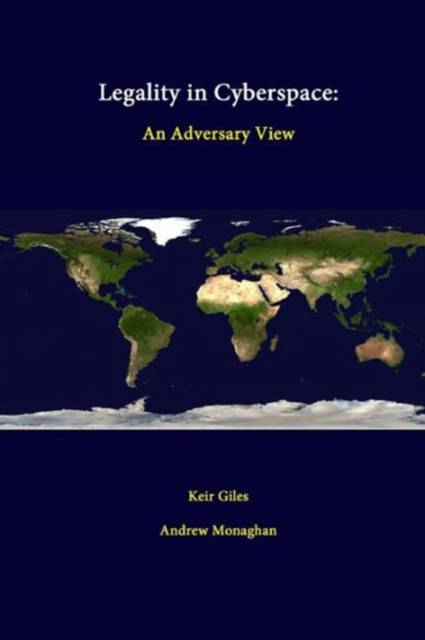
- Afhalen na 1 uur in een winkel met voorraad
- Gratis thuislevering in België vanaf € 30
- Ruim aanbod met 7 miljoen producten
- Afhalen na 1 uur in een winkel met voorraad
- Gratis thuislevering in België vanaf € 30
- Ruim aanbod met 7 miljoen producten
Zoeken
Legality In Cyberspace
An Adversary View
Keir Giles, Andrew Monaghan, Strategic Studies Institute
Paperback | Engels
€ 21,45
+ 42 punten
Omschrijving
While conflict in cyberspace is not a new phenomenon, the legality of hostile cyber activity at a state level remains imperfectly defined. While there is broad agreement among the United States and its allies that cyber warfare would be governed by existing law of armed conflict, with no need for additional treaties or conventions to regulate hostilities online, this view is not shared by many nations that the United States could potentially face as adversaries. A range of foreign states use definitions for cyber conflict that are entirely different from our own, extending to different concepts of what constitutes online hostilities and even a state of war. This leads to a potentially dangerous situation where an adversary could be operating according to an entirely different understanding of international law to that followed by the United States. In this Letort Paper, Mr. Keir Giles uses Russian-language sources and interviews to illustrate the very distinct set of views on the nature of conflict...
Specificaties
Betrokkenen
- Auteur(s):
- Uitgeverij:
Inhoud
- Aantal bladzijden:
- 56
- Taal:
- Engels
Eigenschappen
- Productcode (EAN):
- 9781312278073
- Verschijningsdatum:
- 14/06/2014
- Uitvoering:
- Paperback
- Formaat:
- Trade paperback (VS)
- Afmetingen:
- 152 mm x 229 mm
- Gewicht:
- 95 g

Alleen bij Standaard Boekhandel
+ 42 punten op je klantenkaart van Standaard Boekhandel
Beoordelingen
We publiceren alleen reviews die voldoen aan de voorwaarden voor reviews. Bekijk onze voorwaarden voor reviews.











